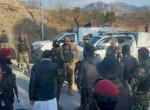The most significant news of last one week from Sri Lanka was not only the dissolution of its Parliament and fresh elections, but also the public declaration of intent by former President Mahinda Rajapaksa (MR) to mark his political re-entry. Addressing a group of supporters in his home base Medamulana, MR announced his candidature for the general elections scheduled for August 17, 2015. The news of his political ‘comeback’ generated an euphoria among his supporters and but sent shock waves among his nemesis; both within his own political party and outside it.
The most striking implication of this news could be the ‘creation of mare’s nest’ of trouble for the incumbent President Maithripala Sirisena, who is also the leader of United People’s Freedom Alliance (UPFA); the ruling coalition. Both Sirisena and Rajapaksa belong to Sri Lankan Freedom Party (SLFP), which is the leading constituent of UPFA and is witnessing internal factionalism under the ‘two-leader’ dispensation. Mindful of Rajpaksa’s substantial clout and political realities surrounding him, Sirisena had shown some flexibility to accommodate Rajapaksa that did not go down well with his own supporters. Now the President is facing a strange predicament where it has become near impossible for him to find a golden mean. Whatever course of action he chooses is bound to generate strong political ripples. This article attempts to analyse the political compulsions and its repercussions arising out of the political ambitions of Rajapaksa and the opportune moment he has chosen for his re-entry.
MR is out of power, yet a power to contend with !
After his defeat in the Presidential elections of January this year, some political commentators had thought ‘MR, had gone into a cocoon. However, it was soon realised that he was only reorganizing himself and drafting a comeback strategy as the prime ministerial candidate of his party/alliance. His loyalist in the ruling coalition, in the mean while, adopted a tactics of giving a tough time to Sirisena and Prime Minister Ranil Wickremesinghe of United National Party (UNP) on policy issues. The schism between Sirisena supporters and MR loyalists started becoming wider with every passing day, so much so that both Chandrika Kumaratunga and President Sirisena had to issue statements asserting that no one would be allowed to ‘split’ the SLFP to ‘achieve petty political’ objectives. Thus, despite being out of power, MR managed to haunt Sri Lankan political scene.
Efforts at rapprochement
Both Sirisena and MR as seasoned politicians are aware of each other’s political weight and propensity. Sirisena heads the executive council of the UPFA which is the ultimate authority to decide nomination of candidates for the upcoming elections. In mid-June, before the parliament was dissolved, SLFP had set up a six-member committee to resume dialogue with MR in a bid to maintain unity within the party. No coherent view on its efforts emerged but news reports started flooding the Sri Lankan media that added to confusion on whether President had agreed to give nomination to MR or not. And even if he did so, will he name MR as the prime ministerial candidate of the UPFA alliance? Unless MR reviews his stance on contesting elections on SLFP ticket, the party, in view of the tremendous pro-MR pressure from within, has no option but to deal with this vexed question.
To give in or not - that is the dilemma
President Sirisena and the party do not have much time to find an answer to the vexed issues surrounding nomination of MR to contest the parliamentary elections as also his pre-projection as the prime ministerial candidate of the party/alliance. SLFP has to come to terms with the reality of MR still commanding significant support among grass root SLFP leaders and workers. A large section of Sinhala population, genuinely view MR as the ‘savior of nation’ rather than a promoter of nepotism and crony capitalism during his presidency. Hence, an united SLFP with MR as an important player is, in their view, essential to securing Sinhala community votes. It needs to be mentioned here that MR supporters want nothing less than a prime ministerial nomination for their leader. This has antagonized Sirisena’s supports leading to deepening of schism in SLFP. Any division in SLFP votes is bound to work to the advantage of the UNP which is clamoring hard to cash in on the post regime change gains. These political realities necessitate Sirisena to find a way to accommodate MR’s aspirations. Amidst such convoluted political dynamics, it is imperative to maintain unity in SLFP, and perhaps that will compel Sirisena to grant a nomination to MR, despite realizing that once the nomination is granted, MR will settle on nothing less than prime ministerial post if this coalition wins. There could be a temptation to try to technically skirt the issue by giving MR nomination under the UPFA banner rather than as a SLFP candidate, but would this dilute the adverse impact on the electoral chances of the party or the alliance?
There are however equally compelling political considerations which inhibit the President and the party leader acceding to MR’s demands. To start with, Sirisena, it may be recalled, had rebelled from SLFP to directly challenge Rajapaksa’s candidature in the presidential election and had promised a new political culture with good governance, democracy and social justice. This enabled him to secure the support of many small and minority political parties as his allies, along with SLFP’s arch rival UNP. This new coalition of fourteen parties had an inherent understanding to keep Rajapaksa out of governance. Even within the SLFP, former president Chandrika Kumaratunga is vehemently opposed to the idea of granting nomination not only to MR, but also to his close aids. She has even hinted at contesting the elections herself if MR was given a nomination; something that can create further embarrassment for the faction ridden SLFP. Political leaders loyal to the President, such as Dr. Rajitha Senaratne, Reginald Cooray, Patali Champika Ranawaka, Ven. Athuraliye Ratana Thera, and S.B. Dissanayake, strongly believe that MR’s candidature would dampen the aspirations of the people who, not so long back, had voted against his misrule. It will also undo all the gains which the ‘National Unity Government’ has achieved under its ‘100 day action plan’ with UNP.
What is particularly worrying the critics of MR and leaders of the smaller and minority political parties is not the possibility of MR’s return to politics, but the fact that his accommodation within SLFP could be a precursor to his re-emergence as the dominant leader. Chairman Ven. Athuraliye Rathana Thera of the National Council for a Better Tomorrow, has already gone on record to remind Sirisena that the only problem they had was the party under whose banner Mr. Rajapaksa would contest, thereby suggesting that they may review their support in the event of SLFP granting nomination to MR. Even Sri Lanka Muslim Congress (SLMC) MP Rauff Hakeem has said in the parliament that SLMC will be left in lurch if SLFP nominates MR. Now SLMC, the coalition partner of SLFP, is planning to contest the upcoming elections with UNP. Possibility of other smaller political parties also drifting away from SLFP in the same way cannot be ignored in any political calculation. Similarly, a section of linguistic and religious minorities like Tamils and Muslims which account for 18.1 and 7.1 per cent of Sri Lankan population1 respectively, will certainly move away from the SLFP, as many of them perceive rise of MR as promotion of ‘counter revolutionary’ force.
Conclusion
President Sirisena is caught between the devil and the deep sea. If MR is accommodated in the electoral calculus, SLFP as a party and Sirisena as the leader of the ‘UPFA’ alliance may end up paying a heavy electoral price including a doubt over President Sirisena’s own commitment to investigating allegation of corruption against close aids of the former president MR. Nominating the same person who led this fraternity will erode the credibility of President Sirisena who is seen as the face of change. By giving in to the demands of MR and his supporters, Sirisena will only validate that he too is just another politician who has failed to practice what he preached and preferred to follow politics of convenience instead. If he acts otherwise, he may well be scripting fall of SLFP. Thus, he is facing a unique situation where, neither the end (in terms of SLFP’s victory) could justify the means nor can the means (of accommodating MR against whom the ruling coalition was formed) justify the ends.
Endnote
- Sri Lanka Race, Religion, and Politics http://www.photius.com/countries/sri_lanka/government/sri_lanka_government_race_religion_and_~430.html
Published Date: 7th July 2015, Image Source: http://stream.aljazeera.com
(Disclaimer: The views and opinions expressed in this article are those of the author and do not necessarily reflect the official policy or position of the Vivekananda International Foundation)










Post new comment